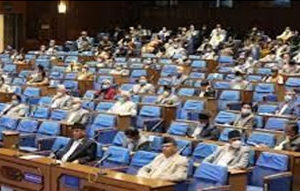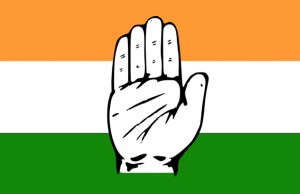ONE TRAP MODI MUST AVOID IN 2016

PM should be aware of backdoor players that seek to privatise public sector banks.
Recent news stories reveal how Indian banks are entering 2016 with debt worth $60 billion. It is part of a hidden Modi government-led agenda that seeks to create very liberal entry points for private banks in state-owned public sector banks. Sources suggest that study reports are ready for the same. These reports will either propose the privatisation of certain banks or a heavy downsizing in their operations.
The study reports prepared for the purpose state: “Indian public sector banks have been in bad shape for a while now, thanks to an overload of bad loans, which are close to topping Rs 3,00,000 crore.” These studies further stress that “with the emergence of payment banks as a new competitive threat, public sector banks will be reduced to carcasses if they are not privatised”. One of the study papers mentions the names of two banks that are already close to the 10 percent mark on bad loans.
Vested interests have prepared a note saying that “at the end of June this year, just nine PSBs had gross bad loans below 5 percent of assets; four had non-performing assets (NPAs) in excess of 7 percent, and two of them were heading towards double-digits”. Suffice to say, the Indian Overseas Bank and United Bank of India could be the first casualties on the road to privatisation as their share of bad loans stand at 9.4 percent and 9.6 percent respectively.
Although Modi seeks to bring PSBs on track with improved management practices, expert reports have rejected such measures, saying, “These steps may not eliminate the rot that has accumulated in the public sector banking system, which has been ruined by cronyism, excess manpower, and poor management. The truth is that PSBs are high-cost monsters and they are also relatively poorly invested in technology vis-a-vis private banks. This means they not only need more capital for providing against bad loans, but also extra money for offering voluntary retirement schemes (VRS) to excess staff, and for investments in upgrading technology.”
It is true that the banking business is no longer restricted to taking money from depositors and lending it to business enterprises and individuals. New innovations such as payment wallets, gold loan companies, and even e-commerce players are fast becoming quasi-financial set-ups. Taking advantage of this situation, a strategy note prepared for pushing privatisation argues, “table-banking will move towards mobiles and cashless payments, which will make the huge branch infrastructure of PSBs inviable unless these are put to value-added use like selling financial products or even as pickup points for e-commerce purchases”.
The note sent to the Prime Minister’s Office (PMO) adds, “in this scenario, the HDFC Bank and ICICI Bank will leave their public sector counterparts far behind and the corporate jaunts such as Airtel and Vodafone will enter through the payment banking route and will take away many customers with them”. The note suggests two options to counter this problem and both are difficult choices. The first option is to get legislation in place to privatise some public sector banks before they become complete basket cases. Reports indicate that at least four of them currently have non-performing assets above 7 percent. The PMO has been advised that if the word privatisation is an anathema, then it will have to legislate a golden share where majority voting rights remain with the government but economic ownership and management can pass into private hands.
The other option is to shrink the worst-performing public sector banks into narrow banks. These financial entities may have the freedom to raise deposits. However, their lending operations could be either severely curtailed or restricted to investments only in Triple A borrowers and the government. This very idea has an eye on four banks—United Bank, Indian Overseas Bank, UCO Bank, and Bank of Maharashtra. Lobbies in favour of privatisation have reportedly told Prime Minister Modi and Finance Minister Arun Jaitley that they have very little room. These lobbies argue that it is time for the government to accept the inevitable and embrace privatisation.
A special exercise to overhaul the working of the Indian banks operating in foreign countries is also underway. Though no one will formally accept the news, sources inform that 182 branches of 12 public sector and 3 private Indian banks are under the direct scanner of the PMO. The activities of all Indian officers and their local recruits working in PSBs across 30 countries are being watched closely by the Directorate of Revenue Intelligence through Indian missions abroad. Moreover, 26 subsidiaries of Indian banks abroad and 7 joint ventures are also being subject to a thorough screening process. Additionally, 55 representative offices of Indian banks working in different countries are also directly under the PMO’s radar. Sources say, the outcome of a vigil kept on the activities of five branches run by a private sector Indian bank in China, Hong Kong, Singapore, United Arab Emirates, and Sri Lanka is an eye-opener for the PMO.
The December 2014 guidelines permit public sector banks to mobilise equity capital to meet Basel III capital adequacy norms, subject to the requirement that the government’s holding must be kept at a minimum of 52 percent. Thus, till now, recapitalisation of PSBs was largely financed through allocations from the Budget that raised the government’s stake. During the last 15 years, budgetary expenditure on recapitalisation of banks totaled Rs 81,200 crore. The expenditure that was undertaken in the four consecutive years between 2010—14 was around 72 percent of the total—Rs 58,600 crore. The actual money utilised for the purpose is not even half of the allocation. However, the Modi government now seems to be supporting the backdoor players, besides going for the privatisation of several PSBs. But let me tell you Mr. Prime Minister, beware of their designs.




You must be logged in to post a comment Login